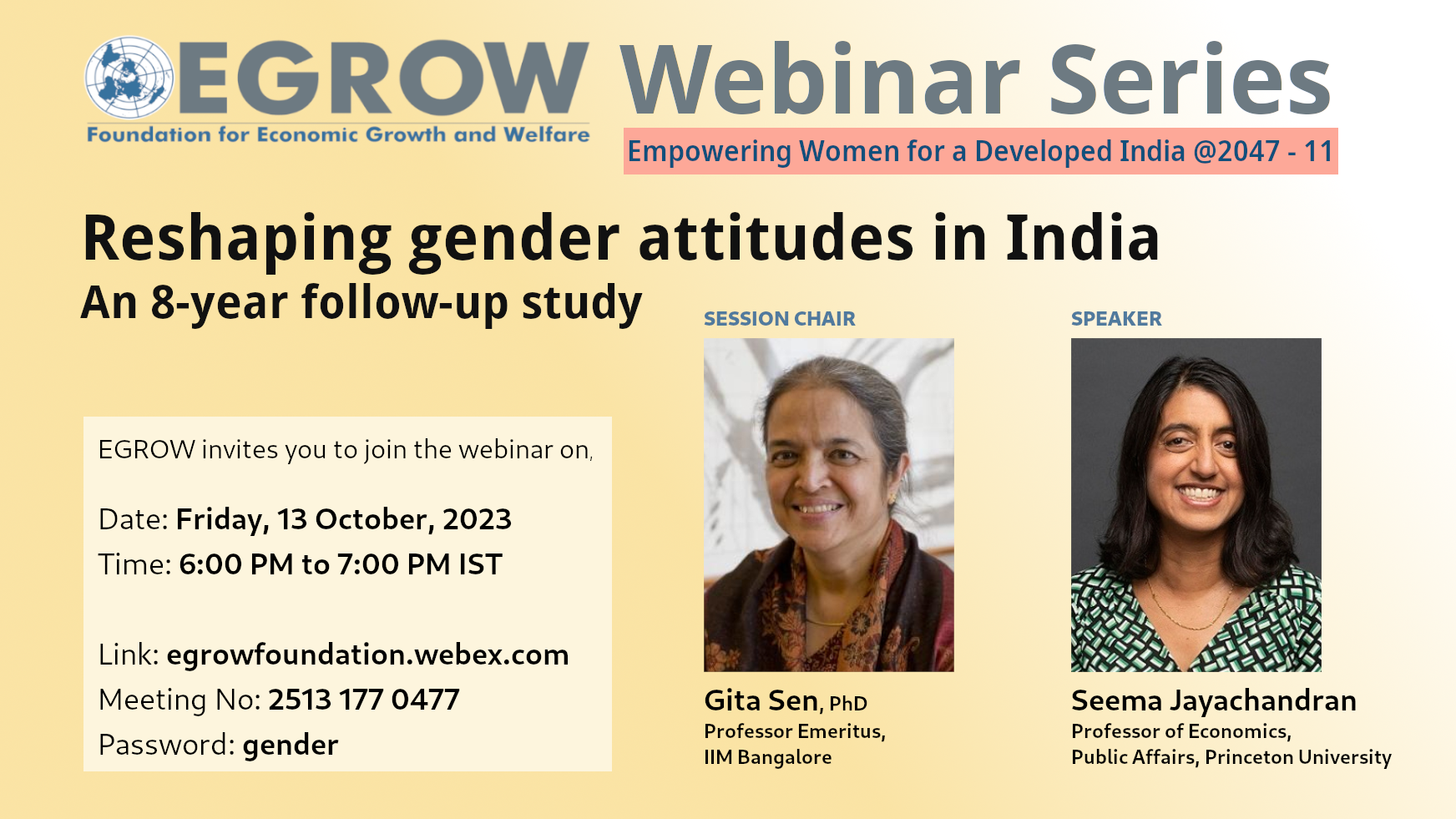Reshaping gender attitudes in India: An 8-year follow-up study

Webinar Link
Meeting No: 2513 177 0477
Password: gender
Certificate of Participants
To recieve certificates, please register and attend
Abstract
We evaluate the long-run effects of an intervention in India that engaged adolescent girls and boys in classroom discussions about gender equality for two years during secondary school, aiming to reduce their support for societal norms that restrict women’s and girls’ opportunities. In prior work, we found that the program made attitudes more supportive of gender equality. In this follow-up study, we estimate longer-run effects, when the study participants are, on average, 20 years old. We also surveyed younger siblings and parents to assess spillover effects of the intervention. First, we find no effects of the intervention on female participants' educational attainment, employment, or age of marriage. Second, the effect on gender attitudes is still present but attenuated compared to the shorter-run effect. Third, female participants report having more personal autonomy. Fourth, we find sizeable spillovers to younger siblings: siblings of those in the treatment group have more progressive gender attitudes. Finally, we find evidence of upward spillovers from boys who participated in the program to their fathers, whose gender attitudes become more progressive.
About the Speakers
Gita Sen
Gita Sen is Professor Emeritus at the Indian Institute of Management Bangalore, former director of the Ramalingaswami Centre on Equity & Social Determinants of Health at the Public Health Foundation of India; and on the executive committee of Development Alternatives with Women for a New Era (DAWN). Her key research areas are health and population; gender and development; and inequality. Sen was the first chairperson of the World Bank’s External Gender Consultative Group, and was a member on the Millennium Project’s Task-force on Gender Equality. She has worked with the United Nations in several capacities, including as the lead consultant for the United Nations Population Fund’s India Population Assessment.
Seema Jayachandran
Seema Jayachandran is a Professor of Economics and Public Affairs at Princeton University. Her research focuses on environmental conservation, gender equality, health, and other microeconomic topics in developing countries.
She serves on the board of directors of the Abdul Latif Jameel Poverty Action Lab (J-PAL) and leads J-PAL's gender sector. She is also co-director of the National Bureau of Economic Research's program in Development Economics and co-editor of the American Economic Journal: Applied Economics. In addition, she serves on CARE's board of directors.
Prior to joining Princeton, she was a faculty member at Northwestern University and Stanford University. She earned a PhD in economics from Harvard University, a master's degree in physics and philosophy from the University of Oxford where she was a Marshall Scholar, and a bachelor's degree in electrical engineering from MIT.